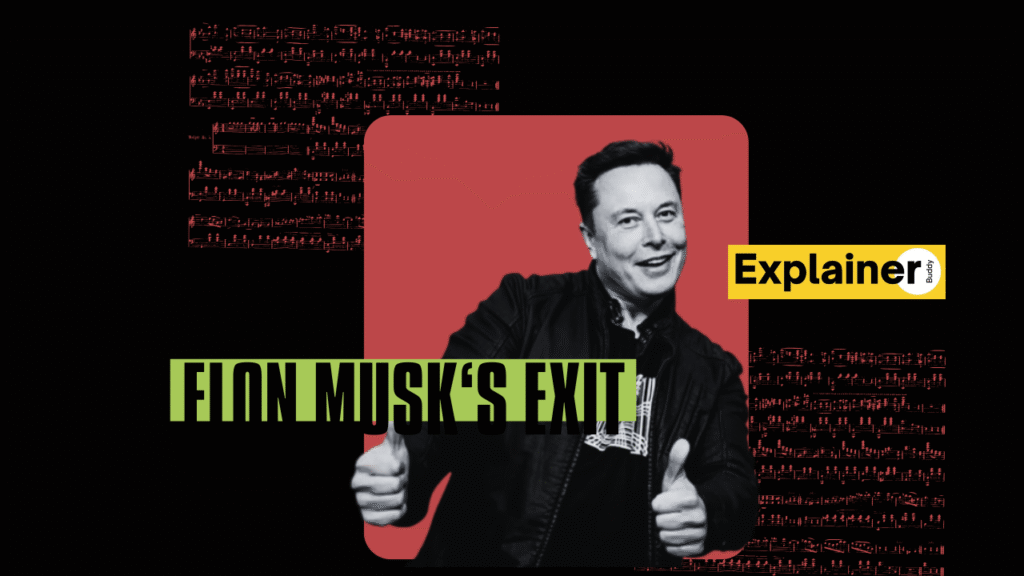Did Elon Musk Just Quit Over Trump’s Spending Spree?
Elon Musk, known for bold innovation and unfiltered opinions, made headlines again—not for rockets or Teslas, but for his sudden exit from DOGE, the Department of Government Efficiency task force under President Donald Trump’s administration. His departure came right after a pointed criticism of Trump’s heavily publicized government spending proposal, the “One Big Beautiful Bill.”
This move has stirred speculation and raised critical questions: Did Musk resign because of the bill? Was there a deeper conflict brewing inside the Trump-era cost-cutting mission? Or was it just a matter of timing?
What Was DOGE and Why Did Elon Musk Join It?
The Department of Government Efficiency (DOGE) was formed under the Trump administration as a task force to streamline operations, reduce wasteful expenditure, and inject Silicon Valley-style innovation into the federal bureaucracy. Elon Musk, along with other tech and business leaders, was brought on board as a Special Government Employee—a temporary advisor with a clear mission: cut costs and boost efficiency.
Trump branded DOGE as a bold step to “drain the swamp” and reinvent government machinery. For Musk, it was a rare political foray aimed at applying logic and data to public sector inefficiencies, something he often champions in his private ventures.
But the ambition of DOGE ran into the realities of political agendas. As the administration pushed for sweeping spending packages under populist banners, the original vision of lean government started to clash with massive fiscal undertakings—setting the stage for the fallout.
The “One Big Beautiful Bill” – Big, Bold, and Budget-Busting
Trump’s “One Big Beautiful Bill” was meant to be a showcase legislative achievement—a sprawling spending package designed to fund infrastructure, defense, and social programs. It was pitched as a visionary tool to “Make America Great Again,” but came with an inconvenient reality: an increase in the federal budget deficit.
For Elon Musk, this was a deal-breaker. Speaking to CBS News, Musk expressed clear disappointment:
“I was, like, disappointed to see the massive spending bill, frankly, which increases the budget deficit… and undermines the work that the DOGE team is doing. I think a bill can be big or it can be beautiful, but I don’t know if it can be both.”
This quote alone sent ripples through the media. It wasn’t just criticism; it was a clear contradiction of the bill’s ethos and a subtle jab at Trump’s branding-heavy politics. When you’re in a cost-cutting team and the administration drops a trillion-dollar bill, your credibility—and purpose—is on the line.
Exit or Ejection? Timing, Tensions, and Theories
Officially, Musk claimed that his term as a Special Government Employee had ended, and thanked Trump for the opportunity. But the timeline tells a more complex story.
Elon Musk announced the end of his role as a Special Government Employee, thanking the US President for the opportunity to cut wasteful spending
— Dima Zeniuk (@DimaZeniuk) May 29, 2025
He now plans to focus more on his companies pic.twitter.com/KdDH80oCVy
Musk’s criticism of the bill aired just days before his departure. There was no mention of renewal talks, no transition plan, no coordinated exit. It felt abrupt, almost like a silent protest or a fallout covered in diplomatic wrapping.
Political insiders and media outlets quickly speculated that Musk’s disagreement with Trump’s fiscal direction may have been a primary driver behind his exit. While neither side has confirmed this directly, the optics strongly suggest tension between DOGE’s original mission and the administration’s evolving priorities. Some believe Musk was gently pushed out to silence dissent within the inner circle. Others see it as Musk taking a principled stand, refusing to endorse a policy that contradicts the fiscal logic he was hired to enforce.
Implications for Policy, Politics, and Musk’s Public Role
Musk’s departure from DOGE isn’t just political drama—it’s a case study in how power, politics, and principles collide in Washington. It raises important questions:
- Can billionaires truly reform government without getting co-opted?
- Is fiscal responsibility dead in the age of populist mega-spending?
- Does dissent inside advisory roles make a difference—or just lead to the door?
For Musk, the exit reaffirmed his reputation as a disruptor who doesn’t play by the rulebook, even when temporarily working within it. For Trump’s administration, it exposed internal inconsistencies: preaching efficiency while passing massive spending bills.
In the broader landscape, this episode might discourage future experts and innovators from engaging with political machinery that doesn’t respect their input. Or it could inspire a new wave of reform-minded participation.
Elon Musk’s exit from DOGE was more than a term expiration—it was a silent but powerful statement against political grandstanding and fiscal hypocrisy. His criticism of Trump’s “One Big Beautiful Bill” cut through the noise and forced a closer look at how government decisions often contradict stated goals.
Whether you admire or criticize Musk, his brief role in the Trump administration reveals a deeper truth: Efficiency and politics rarely mix, especially when slogans override substance. As America continues to wrestle with spending debates, the DOGE saga remains a cautionary tale of what happens when idealism meets political reality. And as for Musk? Don’t expect him to stay quiet for long.





















